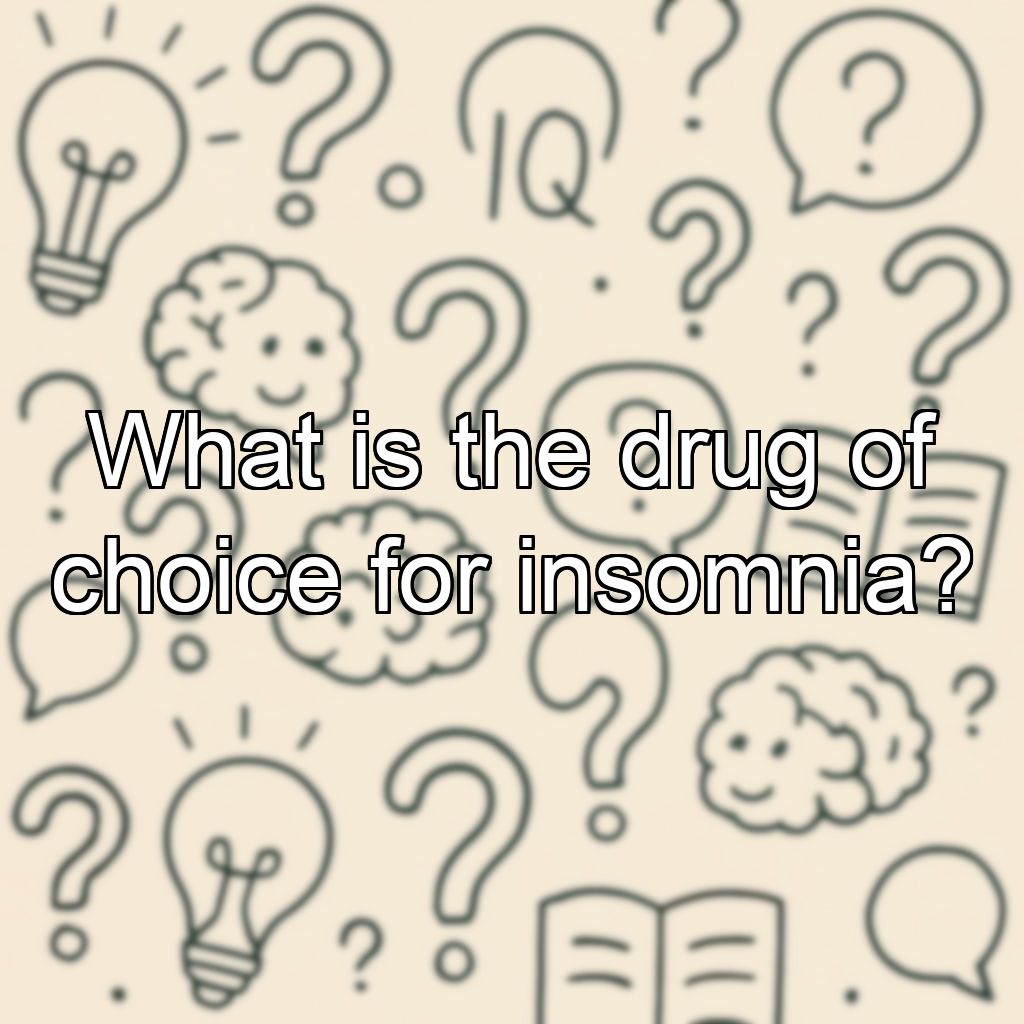What is the drug of choice for insomnia?

Drug of Choice for Insomnia
The optimal treatment for insomnia depends on the underlying cause, severity, and duration of symptoms. Non-pharmacological treatments, such as cognitive behavioral therapy for insomnia (CBT-I), are considered the first-line therapy for most patients.
Pharmacological Options
- Benzodiazepine receptor agonists ("Z-drugs"): These include zolpidem, zaleplon, and eszopiclone. They are commonly used due to their efficacy and relatively favorable side effect profile compared to traditional benzodiazepines.
- Melatonin receptor agonists: Ramelteon is a non-habit-forming option, especially useful for sleep-onset insomnia.
- Orexin receptor antagonists: Suvorexant and lemborexant are newer agents that promote sleep by blocking the action of orexin, a wakefulness-promoting neuropeptide.
- Benzodiazepines: Such as temazepam or lorazepam, can be used short-term but carry a higher risk of dependence and side effects.
- Other agents: Low-dose doxepin (a tricyclic antidepressant), trazodone, or off-label use of other sedating antidepressants or antipsychotics may be considered in select cases.
Summary
For short-term or intermittent insomnia, non-benzodiazepine hypnotics (such as zolpidem or eszopiclone) are often used. Long-term use should be avoided if possible. Behavioral interventions (CBT-I) remain the gold standard for chronic insomnia. It is important to tailor treatment to the individual, considering comorbidities, medication side effects, and risk of dependence.